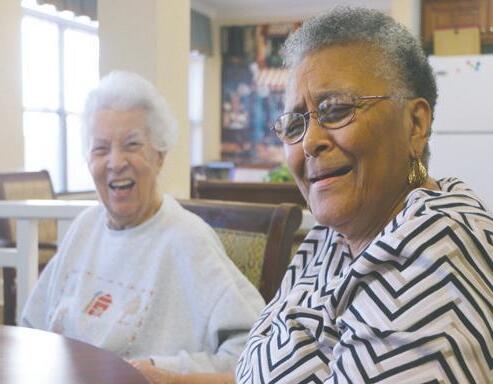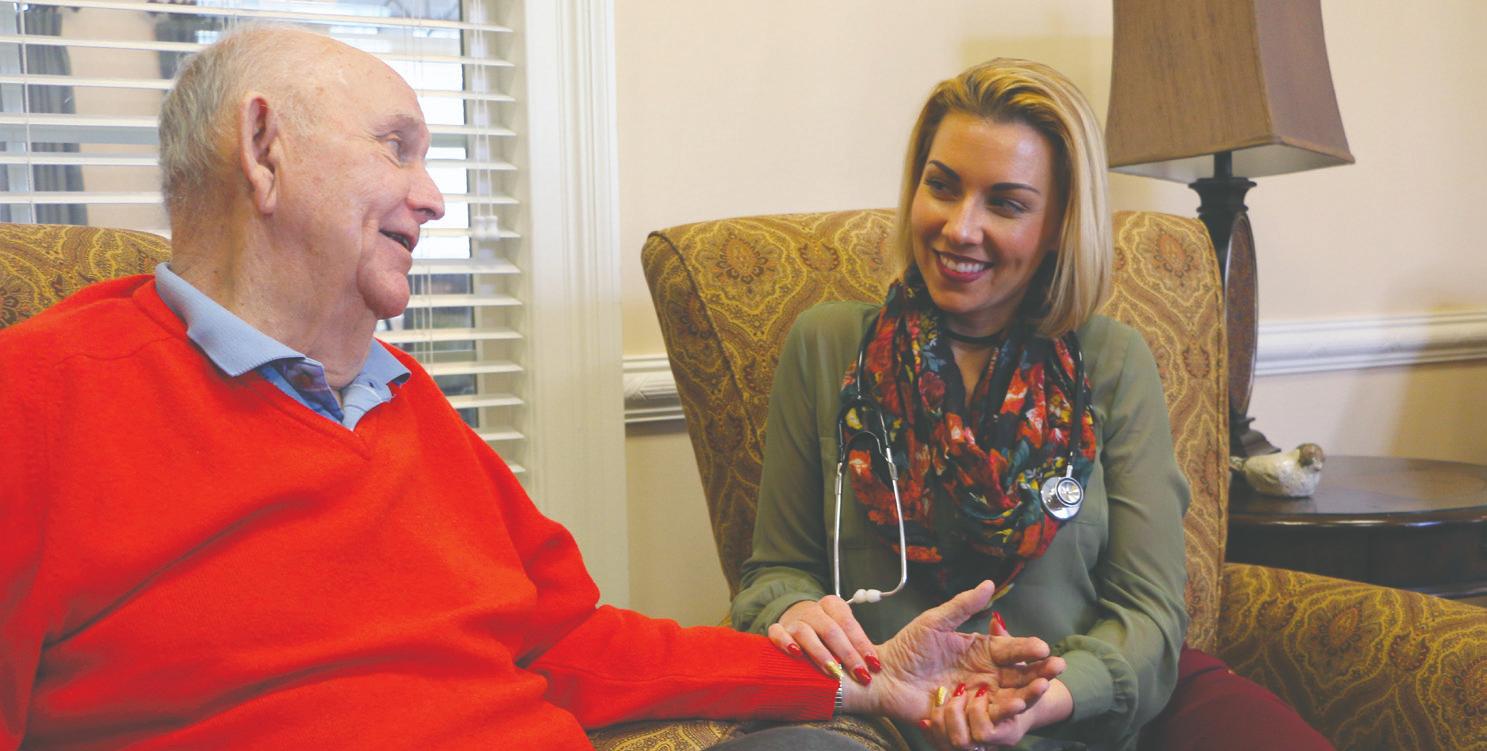
4 minute read
A Triad of Health Conditions to Avoid
Are you at risk for metabolic syndrome?
Check the mirror. Are you displaying a bit too much belly fat?
Do you also have an elevated blood sugar? Or perhaps your doctor has recently mentioned your high cholesterol number—or your high triglycerides, a type of fat found in your blood.
That’s bad news for many reasons.
When found in combination, these conditions are called metabolic syndrome and signal a good reason to make some serious lifestyle changes. That’s because metabolic syndrome increases your risk of heart disease, diabetes and stroke.
Dr. Mohammed K. Ali, associate professor of global health at the Emory Rollins School of Public Health, is the lead author of a recent paper published in “The Lancet Diabetes & Endochrinology,” which discusses metabolic syndrome along with a prediabetes diagnosis.
“Prediabetes is extremely common and it’s increasing,” say Ali and his fellow researchers in the study.
“What we’ve seen is that having high blood sugar levels is associated with a much higher risk of high blood pressure, high cholesterol and an increased risk of having a heart attack in the next 10 years.”
The study found that over 11 percent of people with prediabetes have some type of kidney dysfunction, which is an early predictor that in the next 10 to 15 years, they may need to go on dialysis or receive a kidney transplant.
The medical community uses a long-named survey, the National Health and Nutrition Examination Survey (NHANES), which is designed to assess the health and nutritional status of adults and children in the United States. It’s a unique study in that it combines interviews and physical examinations.

According to the third edition of the NHANES, metabolic syndrome prevalence actually increases with age. Only 7 percent of 20- to 29-year-olds need to fret about metabolic syndrome. By age 60, the syndrome’s prevalence is above 40 percent, as reported by Harvard Health Publishing.
Ali and his fellow researchers analyzed data from 1988 to 2014 from NHANES and looked for both heart and kidney issues associated with prediabetes for their study. It’s possible that one in three Georgians aged 60 and over may have prediabetes blood sugar levels. That’s a lot of people — the U.S. Census reports about 1.5 million men and women over 60 years of age reside in Georgia; one third would mean about 500,000 senior Georgians may be at risk, and could greatly benefit by walking, eating right and quitting their tobacco use.

According to many reputable health sources, including the Mayo Clinic, many people with metabolic syndrome appear as “apple-shaped,” meaning the majority of their weight is around their middles. It turns out that where a person carries his or her weight is an important health factor.
There are, however, some positive things that can improve a person’s ability to change his or her current course of health.
“Depending on the combination of blood sugar, blood pressure and cholesterol abnormalities that each patient has, I would advise them on the specific things they need to work on and treat,” Ali said.
He adds that almost everyone can benefit from:
• 30-minutes of moderate physical activity, such as a brisk walk;
• eating four to five servings of raw fruits and raw or cooked vegetables each day;
• reducing the processed and sugary foods, such as ice cream and sugar-sweetened beverages;
• replacing fried foods with grilled foods;

• and avoiding hidden sources of salt and sugar, such as those found in deli-type sandwich meats or flavored yogurts.
“Adding olive oils and a handful of raw (unsalted) walnuts or almonds to one’s diet is also helpful for brain and heart health,” Ali said. It’s also important for anyone at risk to work closely with their physician and other healthcare providers to seek regular medical care. A once-a-year checkup may not be enough for someone who has been diagnosed with metabolic syndrome, as it’s a lifelong condition, according to the National Heart, Lung and Blood Institute.
Ali said that the most important message he could share is: “Eat what’s healthy to help keep your mind and body active for a long and healthy life.”
what to watch For
The American Heart Association reports that the criteria to identify or diagnose metabolic syndrome requires the presence of three or more of the following risk factors.
■ Abdominal obesity: waist circumference
► More than 40 inches for men

► More than 35 inches for women
■ Fasting blood triglyceride levels of 150 mg/dL (milligrams/ deciliter) or more, or taking medicine for high triglycerides
■ Low HDL cholesterol levels or taking medicine for low HDL cholesterol
► Less than 40 mg/dL for men
► Less than 50 mg/dL for women
■ Elevated blood pressure of 130/80 mm Hg or higher or taking medicine for high blood pressure
■ Fasting glucose (blood sugar) of 100 mg/dL or more or taking medicine for high blood glucose
Where to Get Fit
There are many programs in the area to help you get and stay fit. A popular choice for many older adults is SilverSneakers, a free fitness program for boomers and beyond that includes access to workout equipment at local gyms, as well as fitness classes — such as yoga and dance — at area park and recreation centers. Learn more at silversneakers. com. Click the “Locations” link for a list of gyms, churches and community centers that offer SilverSneakers programs in your neighborhood.
Senior centers and YMCAs have a variety of sports and fitness classes and events for all ages. You’ll find group walks, pickleball tournaments, aquatics classes and much more. Visit AtlantaSeniorLife.com and click on Resources for details on senior centers and YMCAs in the north metro Atlanta area.

Our Oasis Neighborhoods are the ideal solution for seniors who value their independence, yet need some assistance with daily living. You’ll enjoy a greater sense of security and community, while we provide the services you need in a comfortable place to call home.
For families caring for loved ones struggling with memory loss, we offer Moments® Memory Care. Our cozy environment is designed exclusively to accommodate the unique needs of seniors with Alzheimer’s, dementia and other memory impairments. Call












